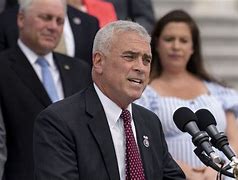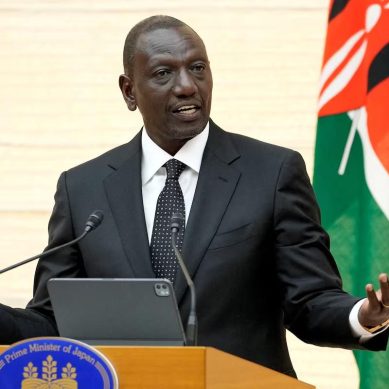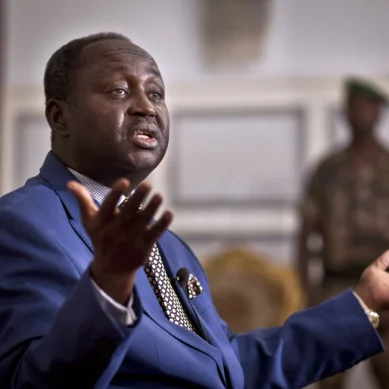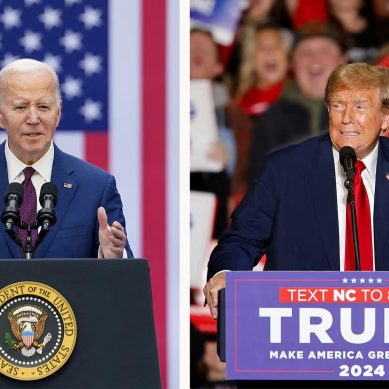
Holden Thorp, editor-in-chief of the Science family of journals, referred to two papers by virologists Michael Worobey and Jonathan E. Pekar, published in Science’s research section 2022 that supported but “[did] not conclusively prove the theory of natural origin.” He said the government did not influence the publication of these papers.
He was testifying on April 16, 2024, before US House Subcommittee on the Coronavirus Pandemic that had invited the editors-in-chief of Nature, Science and The Lancet to provide evidence on government interference in the peer-reviewed publication process
“To be clear and to state upfront, no government officials from the White House or the NIH [National Institutes of Health] prompted or participated in the review or editing of [these] papers by us,” Thorp said.
Upon questioning by Representative Debbie Dingell (Democratic-Michigan) and Representative Deborah Ross (Democratic-North Carolina) about communications between Fauci, Collins and Thorp in May 2021, Thorp said they supported an investigation into the origins of Covid-19 at the time and did not dissuade Science from publishing the Bloom letter.
Responding to Representative Mariannette Miller-Meeks (Republican-Iowa), Thorp acknowledged that opinion pieces “go to 8,000 reporters four days before they’re published.” Because some of these pieces mention government figures, he “from time to time let[s] them know ahead of time that there’s an opinion piece coming that they might get asked about.”
“Scientists are not and never will be perfect,” Thorp said. “We are human, but the scientific method enables us to reach beyond our individual limitations by requiring evidence and constant self-correction. It helped us end the pandemic.”
Referring to the Worobey and Pekar papers, Subcommittee Chair Brad Wenstrup (Republican-Ohio), said, “It seems that these studies, much like Proximal Origin… were used to stifle debate.”
Similarly, Mead told The Defender that, in recent years, “It seems clear that prestigious high-impact journals like Nature and The Lancet were inclined to prioritize certain narratives or findings that align with the interests of their influential stakeholders.”
“The result has been a suppression of alternative theories or evidence that diverges from these interests, undermining the integrity and objectivity of scientific inquiry,” Mead said, adding that this obstructed the “open exchange of information critical for understanding how this pandemic got created in the first place.”
“The more insidious fundamental issue concerns the biases of the editors themselves and the behind-the-scenes communications they receive from industry and government sources that want them to uphold a specific narrative,” Mead said.
Noting that Democrat members of the subcommittee appeared to defend former government officials like Fauci and Collins during the hearing, Mead said, “It seems fairly clear … that the mega financial relationships between biopharmaceutical companies and the Democratic Party have tainted the conversation around the politicization of science.”
“Why are Fauci and Collins being so assiduously protected by the Democrats when there is clear evidence of malfeasance and dishonesty on their parts?” Mead asked. “This seems to be yet another attempt to whitewash what happened during the pandemic.”
Wenstrup questioned Thorp about a now-deleted March 2023 tweet referring to the origins of Covid-19 in which Thorp said, “One side has scientific evidence, the other has a mediocre episode of Homeland,” noting that “the tweet appears to contradict your testimony today.”
“I was not as careful expressing my personal opinions on my personal Twitter page as I should have,” Thorp said. “That does happen on social media. From time to time, I’ve gotten off Twitter and I highly recommend that.”
Wenstrup also asked Thorp about a November 2021 editorial in which he claimed that research allegedly conducted by the University of North Carolina, the EcoHealth Alliance and the Wuhan Institute of Virology on inserting furin cleavage sites into novel coronaviruses did not occur.
Thorp said he is under pressure to write a 720-word editorial “every two weeks” and, at the time, he “was going from what was reported in news stories” about the issue.
Mead told The Defender that Thorp’s admission that he was basing his editorials on information reported in news stories “is quite alarming.”
“Relying solely on mainstream news reports rather than direct investigation through primary sources and interviews with Ralph Baric and other researchers risks perpetuating misinformation and totally undermines the integrity of scientific inquiry,” Mead said.
“The government will never earn the trust back from the Americans by deeming all information that it doesn’t like as misinformation, nor will it deserve that trust if that’s what our government is doing,” Wenstrup said in his closing remarks.
But experts told The Defender that there was much that Wenstrup and other members of the subcommittee left out of Tuesday’s hearing.
“Congress needs to explore ways to cut off taxpayer funding for journals that do not want to be accountable to taxpayers,” Thacker said.
“The behaviour of Nature has been atrocious, both in terms of the biased news they ran during the pandemic and the corrupt studies they published, such as the Proximal Origin paper, which has all the hallmarks of ghost-writing that I looked into while leading congressional investigations,” Thacker added.
Mead said the relationships of key virologists with Fauci and the Wuhan Institute of Virology “should have been discussed openly” during the hearing.
“Retractions were never mentioned in the context of scientific journals and censorship by those journals,” Mead added. “Problems with the peer review process need to be more fully fleshed out, such as how to avoid overly biased reviewers being skewed in a particular direction to suit the editors’ own biases. It would be interesting to find out how much of Science’s revenue depends on pharmaceutical advertising,” he observed.
- The Defender report / By Michael Nevradakis











